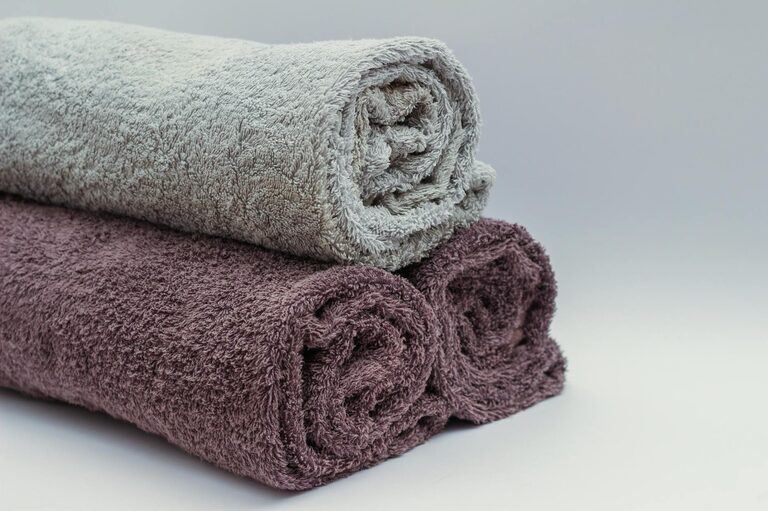Keeping your towels fresh and fluffy can make a big difference in your daily routine. Soft, absorbent towels not only feel great on your skin but also last longer when cared for properly. However, towels often become stiff, musty, or rough after repeated use and washing. The good news is that with a few easy habits and tricks, you can maintain the plushness and freshness of your towels for months or even years.
In this post, we’ll explore practical tips on how to wash, dry, and store towels to keep them soft and fluffy every time.
Why Do Towels Lose Their Softness?
Before diving into the tips, it helps to understand why towels lose their fluffiness. The main reasons include:
– Residue buildup: Detergent, fabric softeners, and minerals from water can build up in towel fibers, reducing absorbency and softness.
– Hard water effects: Minerals like calcium and magnesium can stiffen towels.
– Overdrying: Excessive heat from dryers or sun can make fibers brittle.
– Improper washing: Washing towels with heavy detergents or mixing them with other clothing can damage fibers.
With this in mind, let’s look at some ways to keep your towels feeling fresh and plush.
1. Use the Right Amount of Detergent
Using too much detergent can leave residue on towels, making them stiff and less absorbent. Follow the recommended measurements on your detergent package, and consider these tips:
– Use a mild, liquid detergent designed for delicate fabrics.
– For hard water areas, use a detergent formulated to combat mineral buildup.
– Avoid using powdered detergent in cold washes, as it may not dissolve completely.
2. Skip the Fabric Softener
Though tempting, fabric softeners and dryer sheets can coat towel fibers with waxy substances that reduce absorbency. Instead, try natural alternatives:
– Add half a cup of white vinegar during the rinse cycle. Vinegar helps break down detergent residue and softens fibers.
– Occasionally wash towels with baking soda (half a cup) alongside detergent to remove odors and buildup.
Avoid fabric softeners especially when washing microfiber or Egyptian cotton towels, as they can damage the delicate fibers.
3. Wash Towels Separately
Separate your towels from clothes when washing. Towels produce lint and need a longer rinse cycle, while mixing them with other fabrics can lead to roughness or damage.
Also, avoid washing towels in cold water. Warm or hot water helps remove oils and grime more effectively, keeping towels cleaner and softer.
4. Don’t Overload the Washer
Overfilling the washing machine prevents towels from moving freely, resulting in uneven washing and rinsing. This can trap detergent residues and reduce softness. Leave enough space for towels to tumble freely.
5. Shake Towels Before Drying
Before placing towels in the dryer, give each one a good shake or snap. This helps fluff the fibers and prevents them from clumping during drying.
6. Choose the Right Drying Method
Using a Dryer
– Use a low to medium heat setting to prevent overheating, which can make towels brittle.
– Add dryer balls or clean tennis balls to the dryer. These help separate towel fibers and increase fluffiness.
– Avoid overdrying. Remove towels when slightly damp for softer results.
Air Drying
– If air drying, hang towels fully spread out to maximize air circulation.
– Give them a few shakes during drying to help fluff fibers.
– Avoid drying in direct harsh sunlight for extended periods, as it can weaken fibers and fade colors.
7. Store Towels Properly
Keep your towels in a well-ventilated, dry space. Avoid damp closets or tightly packed shelves that encourage mustiness.
Stack towels loosely and allow airflow between stacks. You can also place a sachet of dried lavender or cedar blocks to keep them smelling fresh naturally.
8. Refresh Towels Between Washes
If your towels develop a stale smell between washes or feel rough, you can:
– Air them out completely after each use by hanging them unfolded.
– Use a spray bottle with a mixture of water and a few drops of essential oil to lightly mist towels and refresh them.
– Occasionally steam towels if you have a fabric steamer; this helps restore softness.
9. Replace Old Towels When Needed
Despite the best care, towels will wear out over time. If towels become thin, rough, or develop persistent odors, it may be time to replace them for optimal comfort and hygiene.
Final Thoughts
Taking good care of your towels is simple but requires some attention to washing, drying, and storage habits. By reducing detergent buildup, avoiding fabric softeners, washing towels separately, and drying them properly, you can enjoy soft, fluffy, and fresh towels every day.
Invest a little time in these small steps, and your towels will feel great for longer—making your daily routines more comfortable and pleasant. Happy laundering!

